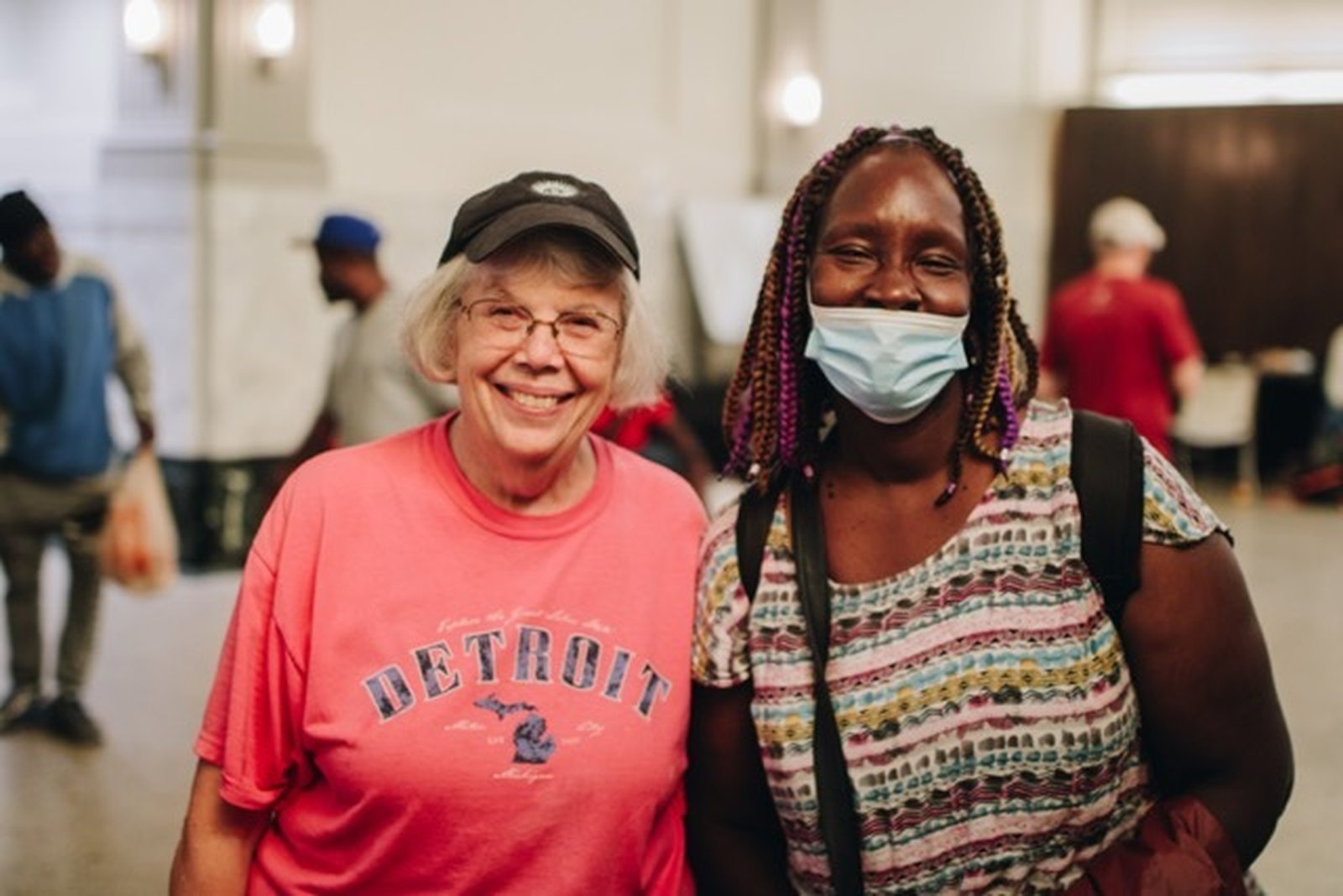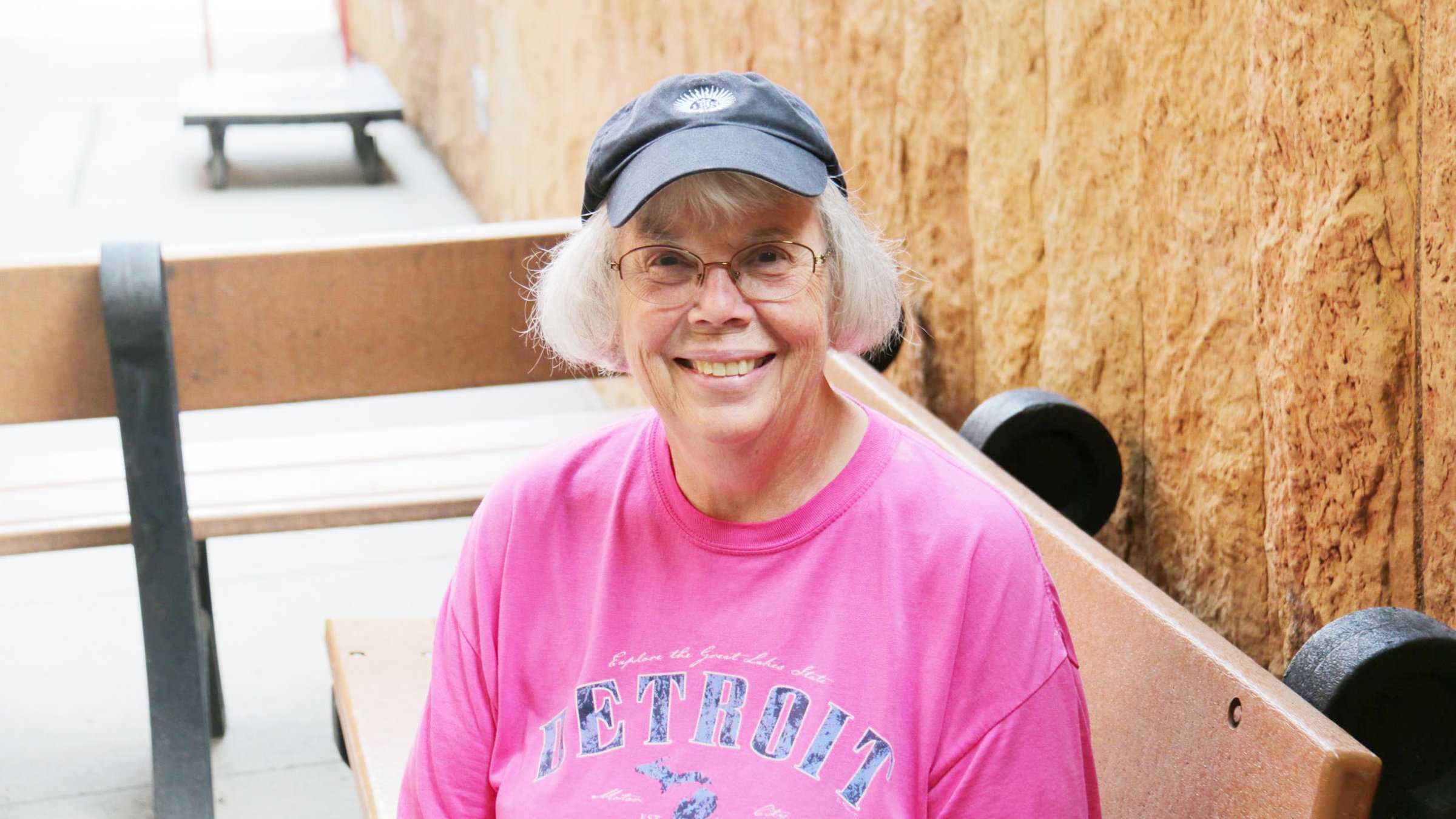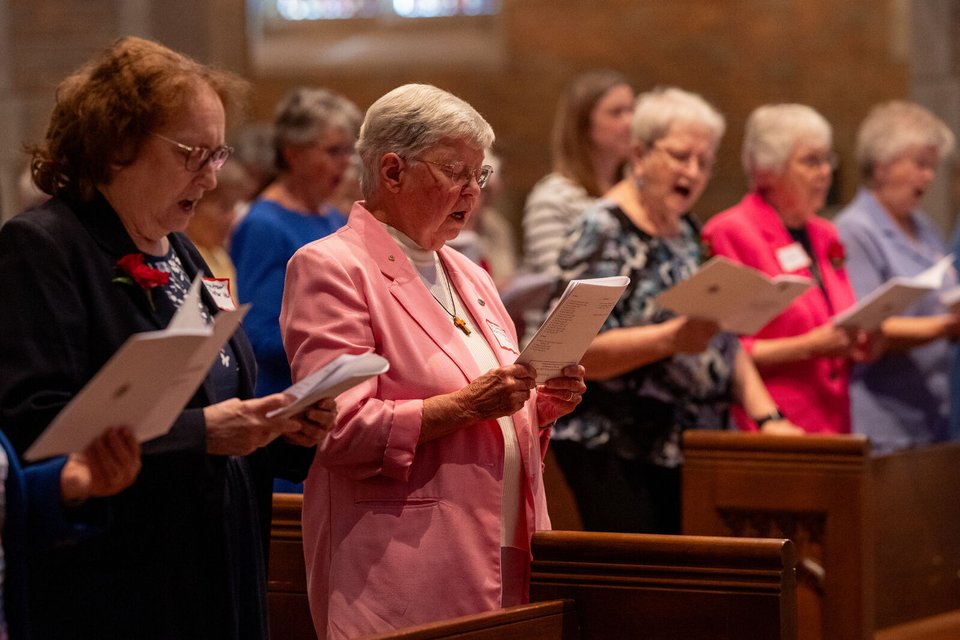Like so many religious who continue to serve long after retirement age, Sr. Linda Werthman, RSM, 'goes where the need is'
DETROIT — Sr. Linda Werthman, RSM, has spent the majority of her 82 years living in community with her fellow Sisters of Mercy and serving the people of Detroit through her contributions to higher education and health care reform.
However, when she entered the community in 1960, she was a 17-year-old girl who knew very little of the world around her.
“I was a child bride,” Sr. Werthman laughed. “I have thought about it, and, did I know anything about the world? No. I was a product of a Catholic family, Catholic elementary, Catholic high school, and Catholic college.”
In her many years of ministry, Sr. Werthman has faced challenges, fought for the community of Detroit, and lived through the “trauma” of social change in the world as well as within the Church itself as, alongside her sisters, they experienced the real-time impact of the Second Vatican Council within their community. But through it all, she has stayed committed to her calling as a Sister of Mercy and to addressing the needs of those around her.
“For me, (I have stuck with it) because I have found Jesus, his words and his actions to be the way, the truth and the life for me: it's just that simple,” Sr. Werthman told Detroit Catholic. “I would not be the person I am today without the resources the community has provided to allow me to delve into the reality of God in my life and my world and in the hearts of minds of people that I come in contact with."
Sr. Werthman is one of hundreds of retired religious sisters, brothers and priests living in the Archdiocese of Detroit. On Dec. 7-8, parishes will take up a special collection for the Retirement Fund for Religious, which provides financial assistance for the retirement and health care needs for religious in 297 U.S. communities.
In 2023, parishioners contributed $455,779.85 to the collection.
The nationwide collection is organized by the National Religious Retirement Office, which is supported by the U.S. Conference of Catholic Bishops.
Although Sr. Werthman briefly left Michigan to serve her community in Maryland, she has spent the better part of 50 years working in Detroit and has put her background in social work to good use, particularly with her contributions to the Mercy Health Services (now merged with Holy Cross Health System to make Trinity Health) and as an educator at Mercy College of Detroit.
To this day, Sr. Werthman still serves as a member of Trinity Health Michigan and Trinity Health Detroit and as a board member of the University of Detroit Mercy and Carlow University in Pennsylvania, one of the 16 colleges and universities sponsored by the Sisters of Mercy.
In perhaps one of her most significant contributions to the city of Detroit, in the early 1990s, Sr. Werthman became part of the transition operational administration team that merged Mercy College of Detroit and the University of Detroit to create the University of Detroit Mercy.
“For the University of Detroit Mercy, I was in the trenches,” Sr. Werthman said. “I worked with my colleagues to get the schedules together, to set the grading policies, human resources, all of that. In the fall of 1991, we were to have had everything questioned and a new reality developed.”

Thirty-three years later, she is still proud of the work she did alongside her team.
“It’s good; the University of Detroit Mercy is a solid institution,” Sr. Werthman said. “It serves the city, and it’s hit its stride in terms of enrollment and expansion into new programs such as optometry and dental, which is expanding into the state of Vermont.”
Sr. Werthman can’t remember anyone encouraging her to consider religious life as a young girl, but she remembers the joy and laughter of the religious sisters who taught her in elementary school, who used to come out to play during recess and would take their habits off to jump rope with her and her friends. She credits them with her decision to join the Sisters of Mercy.
The Sisters of Mercy helped mold Sr. Werthman from a young, naive 17-year-old to a woman of mercy in action, she explained, noting that she wouldn’t have the educational experiences granted to her without the support of her community.
Sister said her first exposure outside of her white, Catholic bubble was in the 1960s when she attended Michigan State University as a young sister. Her eyes were opened to the changes happening in the world: racial unrest, the war on poverty, and the Vietnam War, among others.
At the same time as the world was experiencing great social upheaval, Sr. Werthman saw the Catholic Church experiencing its own change.
“I am a child of Vatican II in the Church, and so for me, probably because I was so young, it was heady,” Sr. Werthman added.
Sister lived the changes firsthand within her own community.
“When I entered in 1960, it was very much the traditional formation. I had a postulant habit, and I wore the habit until 1968, and then we had a modified habit, and then when I was accepted to go into social work, I wrote for permission not to wear anything, even the modified habit that would identify me, because I figured I had to learn social work skills and not necessarily deal with religious hang-ups on either side of the continuum,” Sr. Werthman said. "I was granted permission, and then that very summer a letter came out that said, 'Sisters, we expect that you will wear clothes appropriate to the occasion.'”
Sister said at the start of the decade, there were 31 sisters in her class. Eight years later, at the time of final professions, there were 13 sisters left.
“The change was very traumatizing, and some of us faced the fact that this was not the life for us,” Sr. Werthman said. “And every time someone left, I had to say, ‘OK, what does that do to my commitment?' And every time I couldn’t but say, ‘This is where I feel called,’ but it wasn’t without its trauma, particularly when you are 20 years old.”
Sr. Werthman added being part of her community has allowed her to see parts of the world she wouldn’t have otherwise and provided “safety nets” that allow her to serve others and address needs.
Sr. Werthman now lives with three other sisters across the street from St. Suzanne-Our Lady Queen of Heaven Parish in Detroit. She’s retired in the loosest sense of the word, as she continues to volunteer her time and resources to the Detroit community in ways great and small, including as a regular volunteer at the Pope Francis Center in Detroit and at the St. Suzanne Cody Rouge Community Resource Center.
In 2023, Sr. Werthman was honored as the recipient of the Catholic Health Association of the United States' Lifetime Achievement Award, specifically for her work in the 1980s, pioneering the use of data to advance community health.
Through data analysis, Sr. Werthman helped health care systems identify the at-risk populations within their service areas and how to better serve them by identifying social determinants of why people are sick.
Sr. Werthman said she is a “sucker for need” and will go where this is a need to be met. She added her master's and doctorate in social work have allowed her to do this effectively, as have the gifts of her community.
“As a Sister of Mercy, our hope is that our charism of mercy goes where the need is most acute, and that’s the perspective I bring,” Sr. Werthman explained. “The kind of perspective that I bring, that looks at a system and asks, ‘Why are people falling through the safety net? It’s usually that the system hasn’t heard and hasn’t been responsive to what the real needs of the people are, so I think that kind of analysis is what I contribute.”
Copy Permalink
Consecrated life












